One of the loudest themes echoed throughout digital marketing and SEO circles is "content is king." And I have to say...it’s getting old. It's over-used and often paints the picture that more is better, which is very far from the truth.
Content does drive marketing success. Yet, the concise catchphrase oversimplifies and misinterprets content's role in promoting products, services, and most importantly, brand messaging.
You wouldn't expect to summarize any effective marketing strategy with three words, let alone a category as broad as content. You need more information to measure the value and effectiveness of your content strategy.
Enter the content audit.
Content audits tell the whole story, providing qualitative analysis of your website's posts, pages, and much more. Armed with the timely, accurate information an audit offers, it's possible to target meaningful improvements that raise your domain profile and speak to the needs of your niche. So, to make the most of your digital marketing plan and even your website re-design, audit your website content and start reaping the benefits.
Elevate Your Content
Let's first go back to basics. If you expect your content to rank as royalty, you better have something meaningful to say. A more accurate mantra for the future might be:
Engaging, informative, and well-written content is king.
This more accurately reflects what visitors want to see on your website but also accounts for what Google needs, especially with the rise of “answer boxes,” aka “ranking zero.”
Answer boxes are the future of search. With "voice search" continually increasing, Google is getting prepped for single-result queries. You need to know how to optimize your content for this rise, and a content audit is the first step.
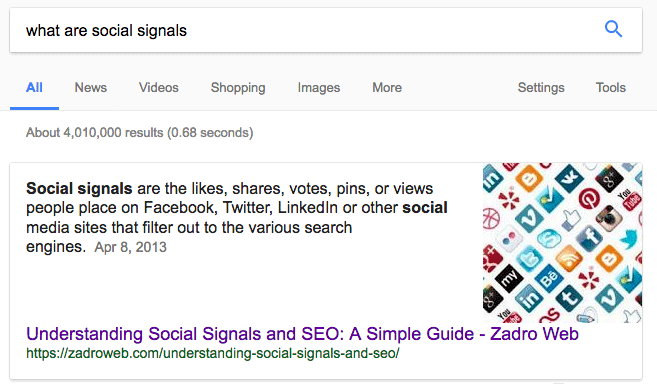
Google only wants high-level content, ranking your site according to topical relevance, among other things. A well-structured content campaign checks both boxes, giving you a chance to get your content in front of the right audience and giving search what's needed to rank. Your website content should:
- Answer Questions - Savvy consumers like to do their own research, so the more your content satisfies visitors' curiosity, the better experience your site provides. Readers prefer to gather information from articles rather than ads, so your site speaks directly to consumers in ways paid advertising can't.
- Establish Your Authority - It is easier to spur sales when your brand is considered a leader. Use a content audit to fine-tune public perception, build credibility, and establish your expertise in the market.
- Start a Conversation - Engaging consumers is the name of the game, laying out a primary goal for your digital marketing strategy. Content that stimulates thought and generates interest will keep you in people's minds. Over time, this dialogue builds brand loyalty as you become a go-to resource.
The material found on your website should also satisfy search engines, but building relationships with good content is equally important. An audit helps uncover optimization pitfalls you can correct and provides valuable insight into the user experience.
Is your website content-focused yet diverse? Do you have too much material on your site? Which pages and articles are drawing the most interest? These are only a few preliminary questions a comprehensive content audit can help you answer, enabling you to correct search shortfalls and offer a better UX for your visitors.
An important distinction separates traditional audits, which focus primarily on SEO, from today's most effective approach in content audits.
A comprehensive audit now places much more weight on the consumer experience, broadening in scope to evaluate site navigation, content gap analysis, conversion factors, social shares, and content engagement.
Marketers armed with this information are better equipped to remove obstacles for consumers and provide precisely the type of content readers want, which ultimately continues to boost your site's trust & authority.
Key Features of a Top Content Audit
Until you know where you stand, it is hard to drive your marketing campaign in the direction you want it to go. The practice can help boost performance in the short term, but ongoing content audits also shape your underlying marketing strategy for the long haul.
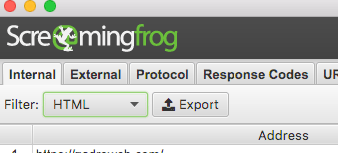
A good audit starts with a complete content inventory. For the best results, use Screaming Frog to crawl your site. Then, filter by HTML and export all this data to a spreadsheet.
You'll then trim down this spreadsheet to the most relevant data, such as Title, URL, and Word Count. You will also have a chance to double-check your metadata to see if anything has been missed, etc.
Once you've brought together a complete content inventory in your spreadsheet, use Ahrefs Batch Analysis to gather data about your site, such as URL/Domain Rating, number of backlinks, number of keywords each URL ranks for, social metrics, and more.
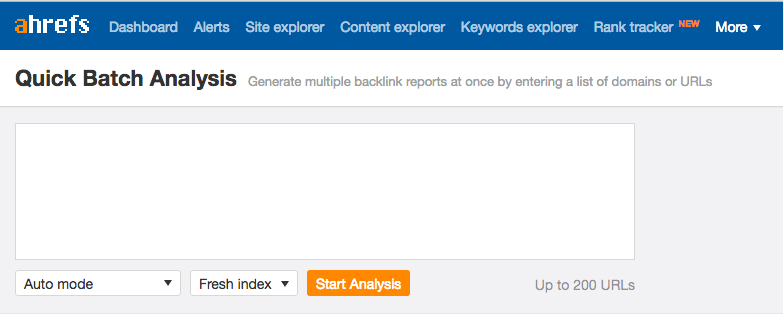
You will also want to check Google Analytics to see which content draws the most pageviews and other metrics, such as average time on page. By creating a spreadsheet and digging through Google Analytics, you can get a picture of what type of content your visitors want to see more.
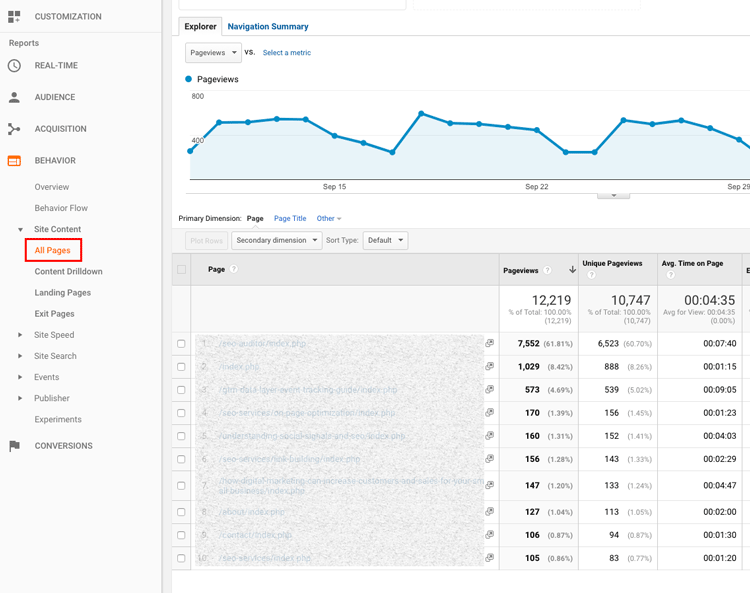
As the data paints a picture of your website, it helps to note the changes you might want to consider. You'll need to dig deeper into much of the content to measure its value, but some content will show weakness right away. Mark these "red" in your spreadsheet (to be pruned), and give strong pages a "green" mark. You can mark content "yellow" that should be further explored or re-written, evaluating the topics, text, and relevance of the material.
Once you have the entire landscape of your data, you're ready to take action. Is there a whole section on your website that is not receiving much traffic or providing value to your visitors in any way? There's a good chance you might want to "noindex" that entire section of your website.
For example, Britney Muller spoke at Mozcon 2017 and how over 175K indexed pages were from low-quality community profile pages. By implementing "noindex" on the profile pages that didn't have a certain level of "points," Moz.com had roughly a 9% bump in organic traffic the next month and almost 14% at year-end.
Another example is real estate websites. Almost every real estate website I see has its listing pages indexed. Why? Do they think they will complete with Zillow or Redfin? If you own a real estate website, noindex your listing pages and focus on your top content pages.
I can think of many more examples, and the purpose of the content audit is to uncover all these issues that are hurting performance.
Thorough Analysis of your Content
Google and website visitors have similar expectations, so quality content satisfies both audiences. Your audit should account for these critical concerns:
- Topical Relevance - Providing information readers want turns you into an expert authority, rewarded with sales, backlinks, and social shares. In much the same way, staying on point gives Google every possible reason to reward your content with rankings.
- Logical Layout - Does your presentation make sense? Strive to build well-organized progressive content readers can easily find and navigate.
- Accurate and Timely Information - Your reputation rides on our site's content, so it must be accurate, above all else. And since you're competing across the web, most content has a short shelf life. To be recognized as an industry leader, stay current, share timely developments within your business and field, or create evergreen content to stay ahead.
- Clean Copy - Is your content well-written? The stakes continue to climb for marketers, as consumers and search demand better copy. Clean, original material is expected. And maintaining a consistent voice also lends authenticity, so make sure copy flows from page to page.
In addition to these particulars, it is also essential to take a wide-angle view of your website content. Is excessive content diluting your site's ranking ability? Selective pruning strengthens your website, even though it results in fewer words.
Is your blog clogged with too many posts covering the same topic? This is known as keyword cannibalism, and it's a big problem for website performance.
Combining similar posts into a single "master" post about a subject sends a more explicit message to Google and keeps your site lean for easy reading. For the best results, build your master post from the one receiving the most traffic and traction.
Thin content can also stunt your growth, so expanding onsite material beyond once-standard 500-word blog posts is crucial. To keep consumers and search engaged, beef up word count or redirect visitors to more engaging material found elsewhere on your domain.
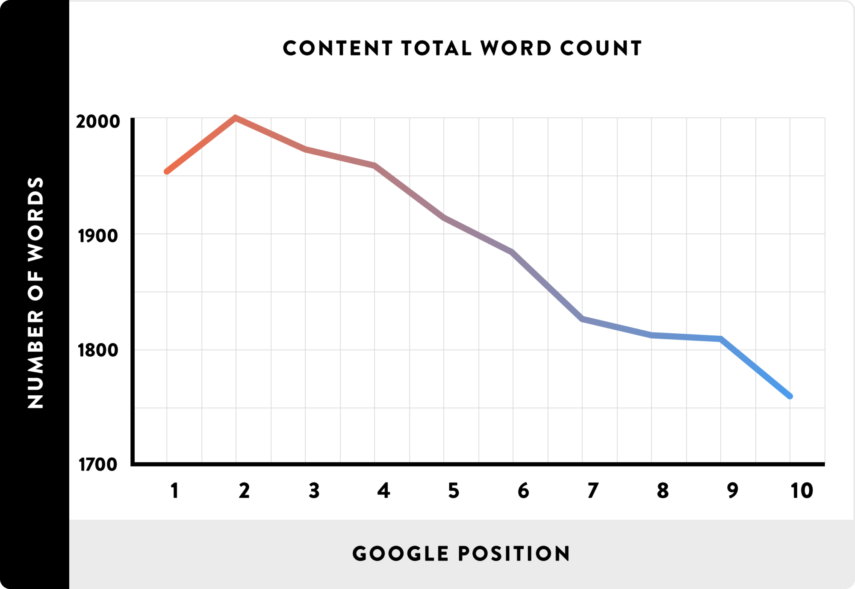
The chart above from Backlinko shows that content ranking in the top search positions has just under 2,000 words. But again, it’s quality and whether your content answers the users’ question that is most important.
Take Action for Improved Performance
Conducting a content audit is like doing research. This process is highly time-consuming and can be a pain for larger enterprise sites. However, the findings will pay off tremendously once you put the data to work.
An audit provides a comprehensive snapshot of your domain content and the tools needed to refine your digital marketing approach. Use content audit results to eliminate weak material and improve your website, both in performance and for your overall UX.
Have you done a content audit on your website? What was your experience? Did it help your rankings and performance? I would love to hear your thoughts in the comments below.




